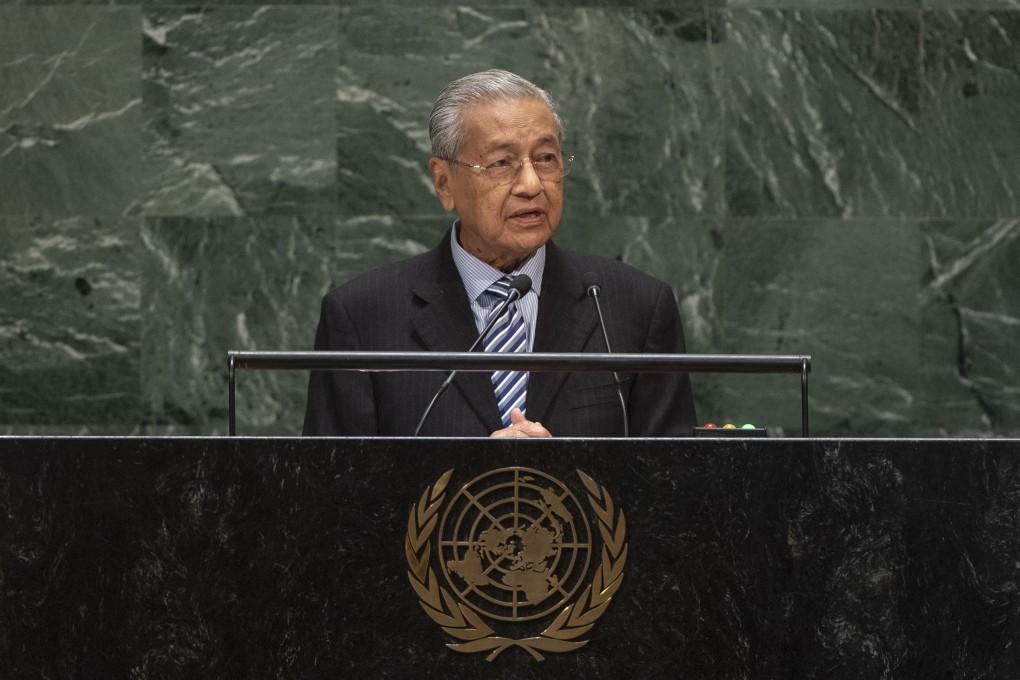Advertisement
Malaysia’s Mahathir thinks China is too powerful to censure on Uygur issue
- Critics say the Southeast Asian nation is being selective in its bid to make Muslim solidarity a central pillar of its foreign policy
- While the premier has spoken out against Israel and Myanmar, he has been more circumspect when it comes to Malaysia’s largest trade partner
Reading Time:3 minutes
Why you can trust SCMP

Malaysia’s efforts to make Muslim solidarity a central pillar of its foreign policy have led to questions on whether the nation is engaging in selective humanitarian criticism, following Prime Minister Mahathir Mohamad’s admission that China was too “powerful” to censure over the Uygur issue.
During the United Nations General Assembly last week Mahathir trained his sights on Israel, saying that its creation by seizing Palestinian land was “the origin of terrorism” and had negatively impacted Muslims globally.
He also lambasted Asean neighbour Myanmar for the country’s systematic targeting of its Rohingya Muslim minority, referring to the crisis as “a genocide”.
Advertisement
In his address, Mahathir said Muslims were being “accused of terrorism even if they did nothing”, remarks that were echoed by Pakistan’s Prime Minister Imran Khan, who told the assembly that some “Western leaders equated terrorism with Islam”.
The two countries, joined by Turkey, later announced their intention to establish a television channel to “explain” Islam and combat Islamophobia.
Advertisement
Advertisement
Select Voice
Choose your listening speed
Get through articles 2x faster
1.25x
250 WPM
Slow
Average
Fast
1.25x